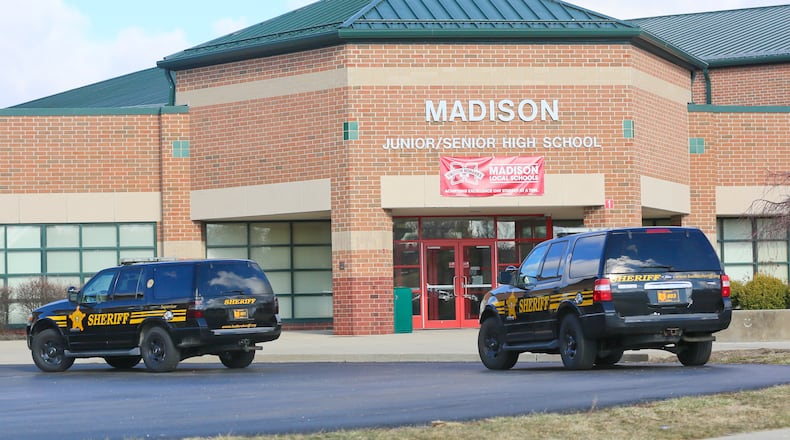“The plaintiff’s proposed reading of the statute is untenable based upon the context of the statute,” Pater wrote in his decision. “The phrase at issue, ‘a position in which such person goes armed while on duty’ in context, must refer to ‘persons otherwise privately employed in a police capacity.’ … Clearly teachers, administrators, administrative assistants and custodians, along with most, if not all, other school employees are not employed by educational institutions in such capacity, unlike someone such as a school resource officer who is.”
EXCLUSIVE: Docs in Madison schools gun lawsuit describe firearms training teachers receive
At issue is the number of hours the armed teachers and staffers would have to train, the 27 in the district’s policy or the more than 728 required of peace officers. The parents also sought all documentation — and were successful in getting — associated with the gun policy.
When asked about an appeal, Rachel Bloomekatz, a Columbus-based attorney with Gupta Wessler PLLC, who serves as co-counsel along with Everytown Law, the litigation arm of Everytown for Gun Safety, said “we’re considering all our options.”
“We’re pleased the court recognized that Madison parents have a right to critical details about the district’s program that the board had tried to keep secret from parents, like the terms of the policy itself and how it is being implemented. Much of what we learned is that the board is not following what it told the public,” Bloomekatz said. “At the same time, we respectfully disagree with the court’s ruling, which means that under state law, teachers and other staff can go armed all day, every day at school with Ohio’s kids after having completed as little as eight hours of training — six of which can be completed online … As Gov. (Mike) DeWine has said, it is clear that teachers should have more than concealed carry training before bringing guns to school.”
RELATED:Family claims intimidation, censorship in Madison schools gun debate in federal lawsuit
A statement by the school district says they are grateful for the judge’s decision and all along they have had the community’s best interests in mind.
“The board respects that the plaintiffs who brought this lawsuit might hold different opinions, but hopes that they will pursue other avenues than litigation to effect change in the future,” the statement reads. “The board will continue doing what we believe is in the best interest of our community. Our primary concern has been and continues to be the safety of our students, and what works for our community may not work for others. While this policy has received a substantial amount of attention, it is just one of many steps that have been taken to ensure student safety.”
About the Author
